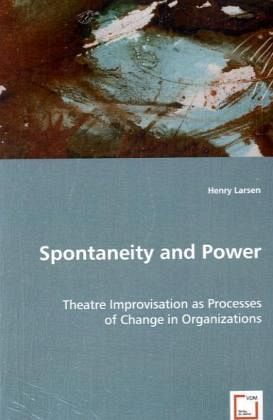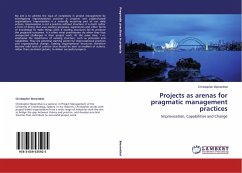
Spontaneity and Power
Theatre Improvisation as Processes of Change in Organizations
Versandkostenfrei!
Versandfertig in 6-10 Tagen
52,99 €
inkl. MwSt.

PAYBACK Punkte
26 °P sammeln!
This book is relevant for consultants, managers and others,who seek to understand the processes of relating in which theyparticipate. Larsen uses improvisational theatre as a form ofconsulting. In the interplay of audience and player immediatechange is created in the ongoing life of the organization becausein the movement of the improvisation meaning emerges spontaneously.Larsen argues that although such spontaneity is experiencedindividually, it is in fact social processes in which it is feltrisky to participate. It seems to me that the apparently smallshifts that Larsen describes change what...
This book is relevant for consultants, managers and others,who seek to understand the processes of relating in which theyparticipate. Larsen uses improvisational theatre as a form ofconsulting. In the interplay of audience and player immediatechange is created in the ongoing life of the organization becausein the movement of the improvisation meaning emerges spontaneously.Larsen argues that although such spontaneity is experiencedindividually, it is in fact social processes in which it is feltrisky to participate. It seems to me that the apparently smallshifts that Larsen describes change what is "known"organizationally, not as a moment of uncovering what is alreadythere but as the emergence of novelty in the processes of mutualspontaneous action. However, this is not just about theatre. Larsencontends that what is critical to whether or not change occurs ishow much spontaneity people finds themselves risking in the face ofpower differentials. He asks how the heightened sense of risk is tobe understood and what makes invitations to spontaneity bothdifficult and crucial. Professor Ralph Stacey Complexity andManagement Centre












